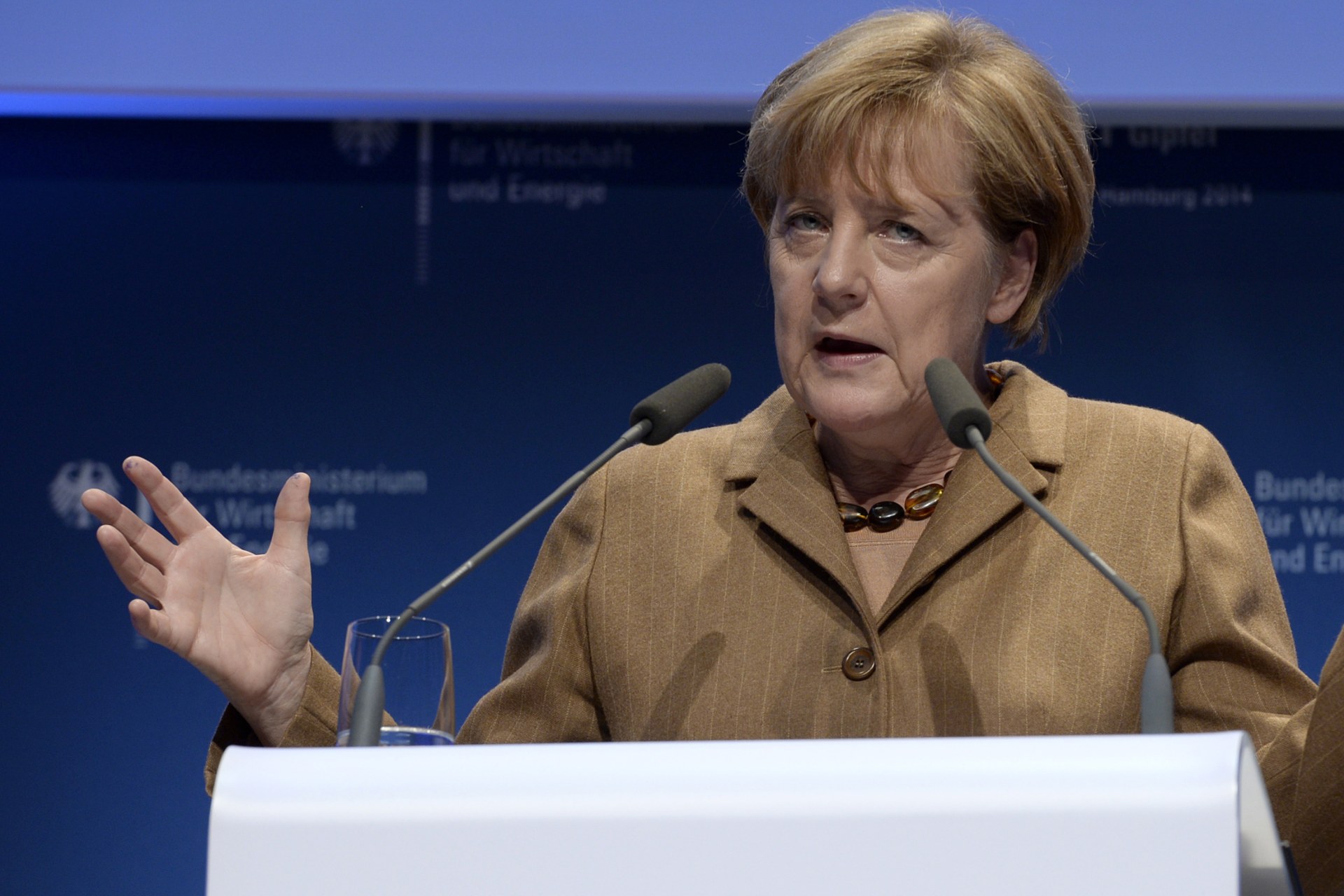Internet Governance and the ITU: Maintaining the Multistakeholder Approach
The German Perspective

BY
- Johannes ThimmHead of the Americas Research Division ad interim, German Institute for International and Security Affairs
- Christian SchallerDeputy Head of the Global Issues Research Division, German Institute for International and Security Affairs
The International Telecommunication Union (ITU) is often considered an obscure technical organization, dealing with radio spectrum, satellite orbits, and telecommunications, that is not worthy of sustained political attention. But in the past few years the ITU has become a battleground for member states promoting their visions of how the Internet should be managed in the future. The 2014 Plenipotentiary of the ITU, being held now in Busan, South Korea, will be another skirmish in that battle.
Germany will go to Busan opposed to the expansion of the ITU mandate to include the Internet, but searching for ways to increase the ITU’s technical capabilities to broaden access to information and communication technology. While Berlin has taken the lead on the topic of online privacy and has questioned the legitimacy of mass surveillance for national security reasons, it is unlikely to raise these issues at the ITU.
Supportive of Multistakeholder Processes
At the heart of the matter is the question of who regulates cyberspace. From the earliest days of the Internet, governance has always been subject to a “multistakeholder” process. The idea behind this model is that all relevant stakeholders, including governments, the business sector, civil society, academics, and other technical experts, closely work together to develop common rules and standards for operating the Internet. A characteristic feature of the multistakeholder process is that such rules and standards are developed in a bottom-up and somewhat spontaneous fashion. This has led to a decentralized and rather fragmented normative framework.
Even though from Germany’s point of view the advantages of the multistakeholder model outweigh the benefits of placing Internet governance exclusively in the hands of governments, the model is not without controversy. Many states—mostly emerging and developing countries—are concerned that they do not have sufficient resources to participate in all relevant forums and that they are not adequately represented in this process. These countries view Western states, especially the United States, as dominating the process. Critics of the multistakeholder approach are convinced that an intergovernmental organization like the ITU is better suited to serve their national interests. For that reason, a broad coalition of states, including Russia, China, India, Iran, and Saudi Arabia, strives for an expansion of the ITU mandate to cover the Internet and its regulation.
Freedom of the Internet entails full access for individuals and ensures protection of all rights people hold offline.
The German position on Internet governance is somewhat in contrast to its traditional support for the UN system. Whereas the United States often prefers informal arrangements over international institutions, Germany traditionally supports the multilateral mechanisms that the UN system has to offer when it comes to setting norms. Internet governance, however, seems to be a different playground because of its history of bottom-up innovation and its role as a truly public sphere.
Germany, along with a number of like-minded states, wants to maintain the multistakeholder approach for one main reason: putting an intergovernmental organization like the ITU in charge of regulating the Internet plays into the hands of governments strongly interested in increasing their control over cyberspace to restrict Internet freedom. These concerns are obviously most pressing with regard to nondemocratic or illiberal regimes that would be able to exercise such control more effectively once they are in charge of setting the rules.
Sensitive About Online Freedom and Privacy
The German government advocates the idea that cyberspace is “a public good and a public space” and that the Internet must be free, open, and transparent. Freedom of the Internet entails full access to the Internet for all individuals and ensures protection of all rights people hold offline (e.g., freedom of opinion and expression, freedom of information, freedom of assembly and association, right to privacy, freedom of religion or belief). In order to foster these rights, Germany joined the Freedom Online Coalition, a coalition of twenty-three states committed to advancing Internet freedom.
Germany will prioritize strengthening the ITU so that the union can more effectively cope with the technical challenges.
Germany has consistently stressed that governments should not use cybersecurity concerns as a pretext for interfering with individual rights. The revelations by Edward Snowden about the National Security Agency (NSA) and surveillance have motivated Berlin to take a leading role on these issues. Together with Brazil, Germany sponsored a UN General Assembly Resolution on the right to privacy in the digital age, which was adopted by consensus in December 2013.
This approach has not meant an embrace of China’s and Russia’s position that international treaties based in the United Nations should be the primary tool for dealing with cybersecurity. Rather, Berlin prefers to further work on a code of conduct addressing the responsibility of states in cyberspace. The German government already outlined possible elements of such a code. An essential component of its position is the exchange of national views on international legal norms pertaining to the use of cyberspace. An important forum for such exchange is the UN Group of Governmental Experts, which was reestablished in July 2014.
For the German government, it is important to be as transparent as possible about its digital-sector policies. In the ITU context, the Federal Ministry for Economic Affairs and Energy (Bundesministerium für Wirtschaft und Energie) has the lead role in developing the German position. The ministry also represents Germany in the ITU Council, which acts as the organization’s governing body in the interval between plenipotentiary conferences. Other ministries consulted in the process of shaping German policies regarding the ITU include the Federal Foreign Office (Auswaertiges Amt), the Federal Ministry of the Interior (Bundesministerium des Innern), and the Federal Ministry of Transport and Digital Infrastructure (Bundesministerium für Verkehr und digitale Infrastruktur).
Redefining the Internet’s degree of openness, interoperability, and interconnectivity is critical.
A new version of the 1988 International Telecommunication Regulations (ITRs), expanded to cover Internet-related matters, was introduced during the 2012 World Conference on International Telecommunications (WCIT) in Dubai. Germany held the position that the ITRs are not an adequate tool to regulate such issues. Although the text of the new ITRs approved at the conference does not explicitly refer to the Internet, Germany is still concerned that certain rules within the ITRs might be invoked by states to justify restrictions on the freedom of the Internet.Germany therefore did not—and probably will not—sign the new 2012 ITRs. Currently, this approach is backed by broad consensus among nongovernmental stakeholders in Germany.
Strengthening the Technical Capacity of the ITU
The Busan agenda will probably be overloaded with many sensitive political issues, some of which might be unrelated to the ITU’s original focus. Some delegations, especially from those states that feel threatened by cyberattacks in the context of armed conflicts, will try to use the conference as a forum to address cybersecurity concerns. They will ask the ITU for assistance in cyber defense capacity building. Another controversial topic is the demand for nondiscriminatory access to information and communication technology. Handling these issues requires considerable manpower and expertise, not only in technical matters but also on the diplomatic front. Though it might prove difficult to disentangle certain issue linkages, Germany will prioritize strengthening the ITU so that the union can more effectively cope with the technical challenges ahead.
The Snowden disclosures could influence the environment surrounding the discussions in Busan. Some countries will raise this issue in order to exert additional pressure on the United States. Although those activities were a cause of considerable concern in Germany, the federal government will choose forums other than the ITU to explore how security concerns may be balanced with the right to privacy in cyberspace.
Beyond Busan
As far as the future of Internet governance is concerned, it is difficult to predict whether the multistakeholder approach will be an adequate model in the long run. As Bola A. Akinterinwa, director-general of the Nigerian Institute of International Affairs, recently put it, “The global Internet is at a moment of redefinition.” Redefining the degree of openness, interoperability, and interconnectivity of the Internet is one of the most critical challenges ahead. The stakes are getting higher and trade-offs in various areas (security versus freedom, access to information versus intellectual property rights, etc.) will become more difficult, not only internationally, but also within Germany. In light of these developments, the consensus in favor of the multistakeholder model in German society and government has been remarkably stable so far. It remains to be seen if this consensus will hold as current challenges become more immediate and new ones arise.
The views presented here are the authors‘ and do not necessarily represent those of the German government.t





